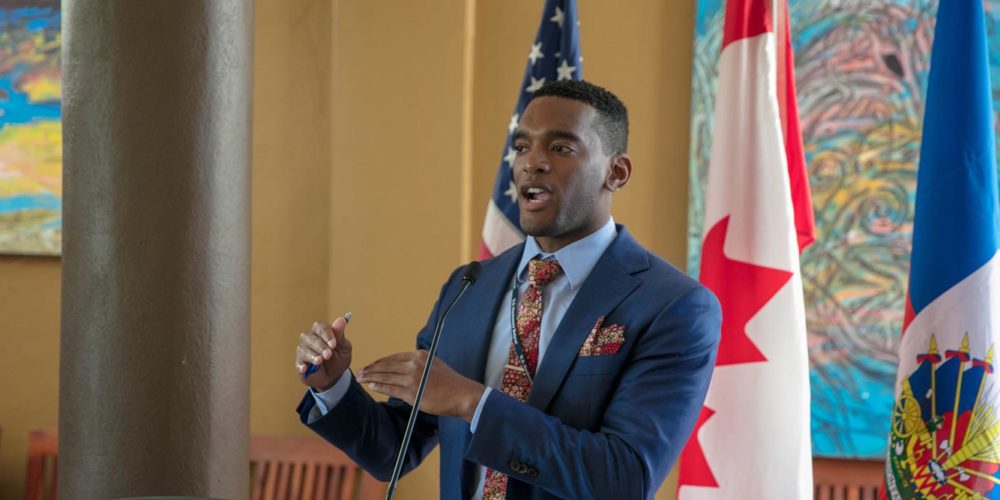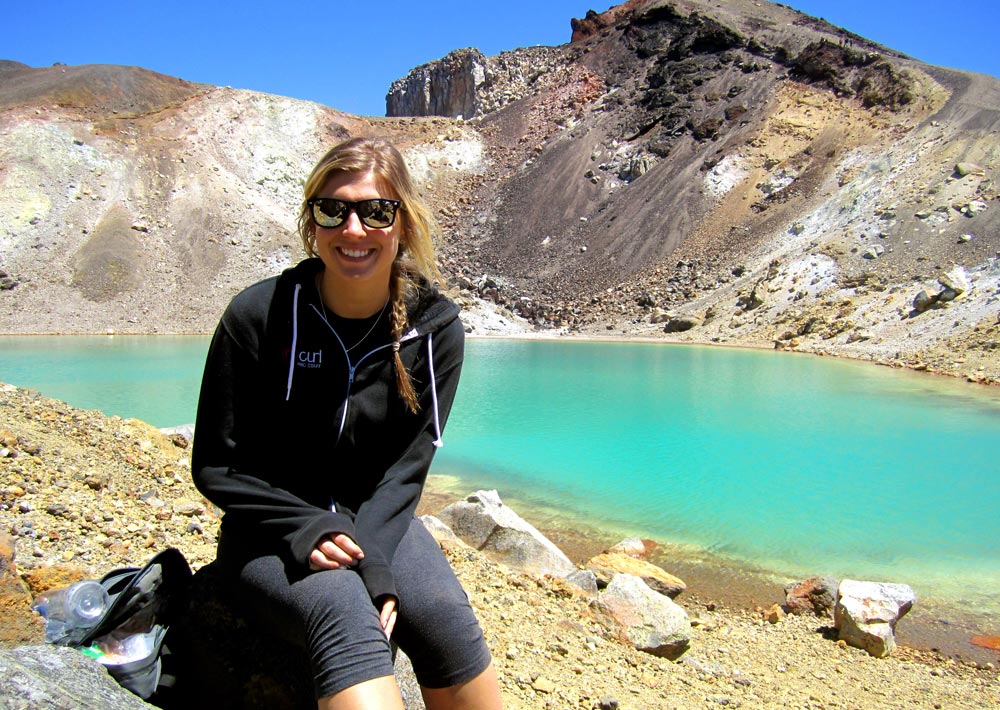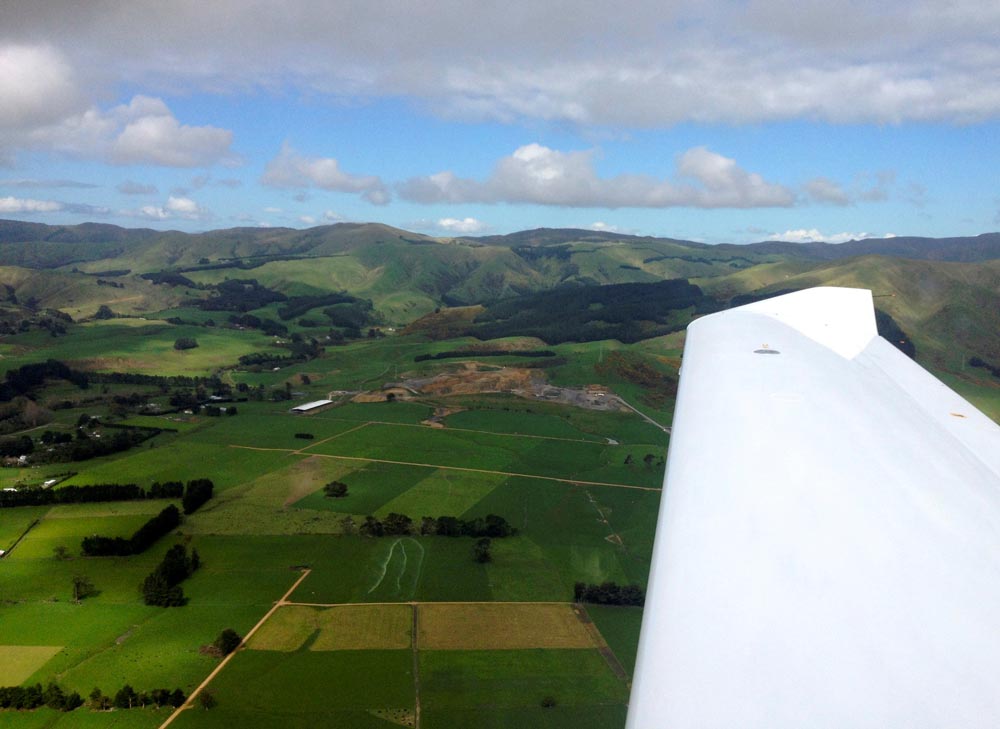Kevin Moss (’14) is an advocate of study abroad programs for obvious reasons. A Foreign Service officer at the U.S. Embassy in Haiti, he says his international experiences were critical to realizing his dream of working for the U.S. Department of State.
“I’m constantly learning and using my language skills every day to navigate my personal and professional world,” Moss says. “There are just as many ups and downs in this career as there were in studying abroad; however, my past experiences taught me how to cope with that and how to be resilient.”
International study programs benefit students of all fields, not just those interested in living and working abroad, says Sue A. Macchiarella, director of global engagement at the Daytona Beach Campus. Studying in a foreign country gives them opportunities for personal growth and helps build their confidence, problem-solving skills and creativity, she says.
“My study abroad experiences continue to shape who I am today and prepared me for what I do for a living.”
Lending support to her claims is a 2017 Institute of International Education report entitled, Gaining an Employment Edge: The Impact of Study Abroad on 21st Century Skills & Career Prospects. The report found that study abroad programs promote multi-cultural understanding and teamwork, both key soft skills in today’s global business environment. It also pointed to high employability of graduates with study abroad experiences, and not just for first jobs, but for subsequent job offers throughout their careers.
“Many companies are international, and being able to work across cultures is critical,” agrees Kelly O’Brien, director of study abroad and global engagement at the Prescott Campus. “They want someone who understands another language and can navigate another culture.”
In a recent employer survey conducted by Macchiarella’s office, 86 percent of company respondents said they value graduates with international experience.
While surveys and studies provide a general measure of success, they only tell half the story. At the individual level, the study abroad program has helped change the lives of several enterprising Embry-Riddle alumni, providing unforgettable experiences while preparing them for career challenges that come their way.
Engineering Across Cultures
Ethan Higgins (’17) says his time studying in Germany helped him get a job as a flight controller at mission control at Johnson Space Center in Houston, Texas.
“As part of the requirements for the position, knowing a European language is a huge plus because of all the international collaboration on the International Space Station,” he says.
During a year-long program (2016-17) in Germany, Higgins received intensive German language instruction, took classes at the Hamburg University of Technology and was involved in the university’s research for Airbus.
“That was probably the best year of my life,” says Higgins, who went on to complete a bachelor’s degree in aerospace engineering. “Not only did I make lifelong friends, but I learned unquantifiable things about myself and my ability to succeed in a completely foreign and sometimes uncomfortable environment.”
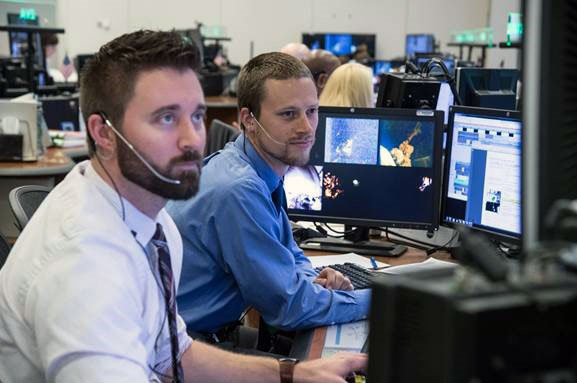
Kris Field (’12, ’13), who earned a B.S. and an M.S. in Aerospace Engineering, says his study abroad experience in Paris, France, prepared him to be a NASA flight controller, also supporting the International Space Station.
“I was in the dual-degree program at the EPF Graduate School of Engineering in Sceaux, France,” Field says. “The program consisted of studying in France for my junior year, returning to Embry-Riddle for my senior year, and then going back to France for a semester in grad school.”
There were tough times, he recalls, such as sitting in a three-hour lecture on thermodynamics, conducted entirely in French, while he was still learning the language.
“Still, to this day, one of the coolest memories of my life is the first time I dreamed in French,” Field says.
In the end, he learned not only engineering, but also a new language and culture. He also learned how to adapt. “In my career today, there are stressful challenges that pop up. But when I start to worry about them, I reflect on how I was able to learn a new language and pass my engineering classes, and I am confident things will work out,” Field says.
Flying High Abroad
Some students fear studying abroad will delay graduation, Macchiarella says, but most programs contribute towards needed credit hours and requirements, especially during the sophomore and junior years.
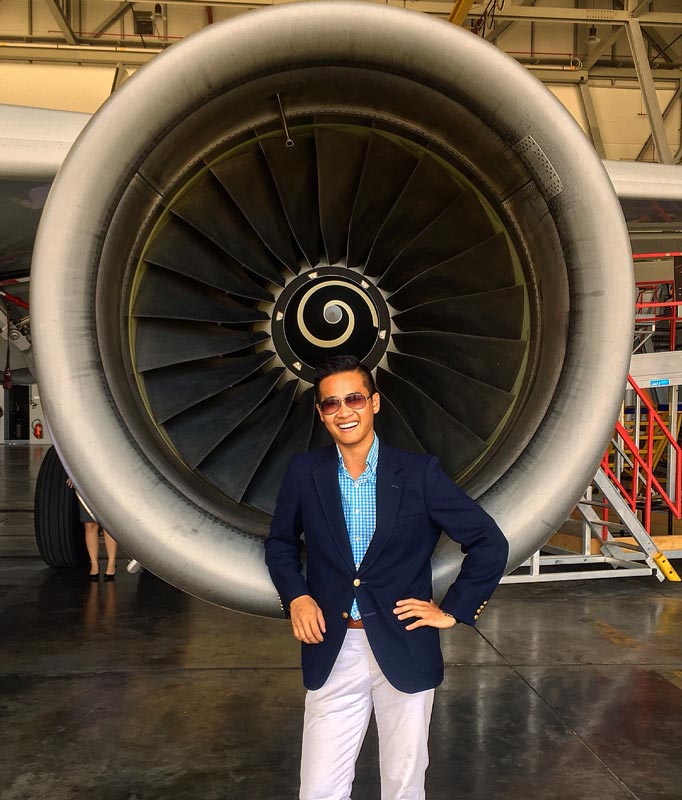
Alex Damon (’17), who earned a B.S. in Aeronautical Science, completed several study abroad courses during his time as a student, including a semester in Hong Kong — and still completed his flight training on schedule. Today, he is a first officer at Republic Airline.
“I saw you could schedule a lot of requirements with programs abroad, so why not experience it in real life?” he says. “I got all these classes done and, in some cases, it was cheaper to go abroad.”
In the summer of 2013, he completed the Aviation Appreciation program, during which he traveled to the United Kingdom, France, Germany and Austria; and in 2014, he did a summer program in Italy and completed all of his humanities requirements. He spent spring 2015 studying in Hong Kong, and in the summer of 2016, he did a program in Greece that included a mini-internship with Aegean Airlines.
Mindy Corbitt Lindheim (’14), who also earned a bachelor’s degree in aeronautical science, had the opportunity to pilot an airplane in New Zealand during a semester studying at Massey University.
“One of my favorite memories was getting to fly a Diamond DA-20 with the university’s flight program around New Zealand for a day. The landscape from the ground in New Zealand is spectacular but seeing it from the air is just breathtaking,” she says.
Lindheim, who is a regional sales director and demo pilot for Textron Aviation’s piston aircraft, says her experience made her more independent, confident and adventurous.
Funding for Study Abroad
The costs of study abroad programs vary, says Macchiarella, but there are some scholarships available — especially for programs located in areas of the world with less commonly taught languages and regions critical to U.S. interests.
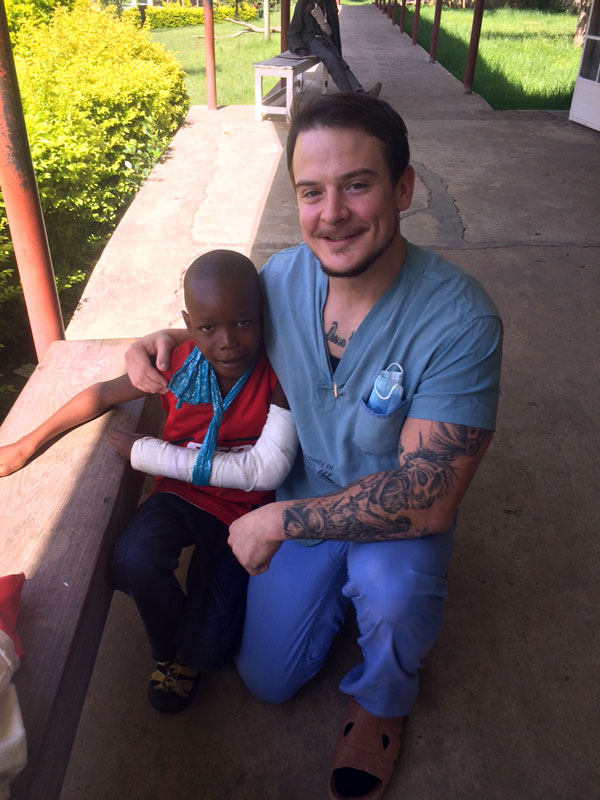
Ryan Marr (’15), a U.S. Marine Corps veteran, who earned a B.S. in Global Security and Intelligence Studies (GSIS), was awarded a David L. Boren Scholarship in 2015 to study KiSwahili in Tanzania.
“I decided to apply to study in Tanzania because of the dynamic nature of security concerns within East Africa,” Marr says.
As part of his study, he interned at a local hospital, assisting the resident surgeon. The internship allowed him to practice his KiSwahili and put into practice the trauma care training he received while serving in Iraq and Afghanistan.
“The love and generosity of the local community was the most powerful thing I have yet encountered,” says Marr, who is now a graduate student at East Carolina University in Greenville, North Carolina.
State Department Aspirations
For Moss, who also studied GSIS, but with a focus on the Middle East, living and working in a foreign country was always part of his long-term plan. As a kid, he frequently traveled overseas to visit his father, who was in the U.S. Air Force. After visiting his dad in Turkey, he became fascinated with the Middle East.
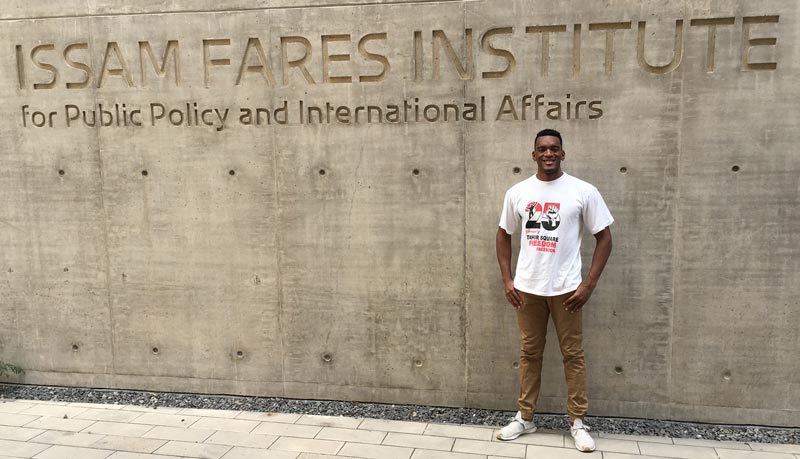
In high school, Moss spent a semester in Cairo, Egypt. As an Embry-Riddle student, he studied in Jordan for a summer, Morocco for a semester and at the American University of Beirut for a summer.
“I grew up knowing that I wanted to represent the U.S. abroad,” he says. “However, I always thought I would do that in the military. Through my experience with Army ROTC and an internship with t
he State Department at our Consulate General in Frankfurt, Germany, I set my sights on the State Department.”
Moss completed an M.A. in Middle Eastern Studies at Harvard University in 2016, and in August of that year, his dream came true. He was hired as a Foreign Service officer at the U.S. Department of State and started working in Haiti.
Moss recently learned his next assignment will bring him back to a region he loves. In May, he was assigned to be a political officer at the U.S. Consulate General in Istanbul, Turkey.
“My study abroad experiences continue to shape who I am today and have prepared me for what I do for a living,” he says.
